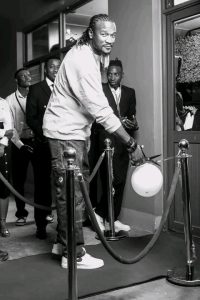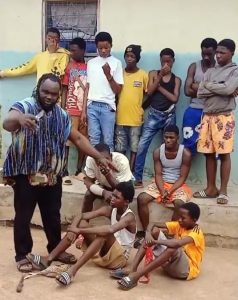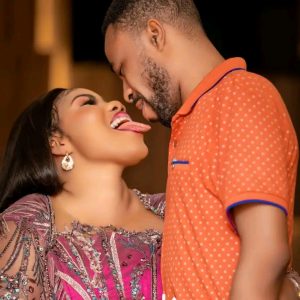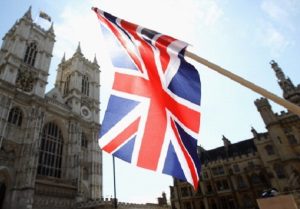Burkina Faso’s leader attends Ghana inauguration armed
4 min readBurkina Faso’s military leader, Captain Ibrahim Traoré, has sparked a wave of controversy after attending the inauguration of Ghana’s new president, John Mahama, with a holstered pistol visibly strapped to his waist. The move, which many saw as unusual and provocative, raised questions about security protocols at such high-profile events and fueled speculation about Traoré’s confidence in Ghana’s security arrangements.
The presence of Traoré at the event, armed and in full view of the public, has prompted widespread debate. Neither Ghana’s government nor President Mahama’s team has commented on whether Traoré had permission to carry the weapon during the inauguration, further intensifying the speculation surrounding his actions.
Security experts are divided over the implications of Traoré’s decision to attend the ceremony armed. Vladimir Antwi-Danso, a security analyst, stated that it is unprecedented for a visiting head of state to carry a firearm to an event like an inauguration. According to Antwi-Danso, the host country is traditionally responsible for providing security and ensuring the safety of dignitaries, making it unusual for a foreign leader to bring their own weapon.
On the other hand, retired Colonel Festus Aboagye suggested that there might be a bilateral agreement between Ghana and Burkina Faso that allowed Traoré to retain his sidearm and personal security detail. Aboagye’s comments reflect a more diplomatic interpretation, suggesting that such a decision might have been made through official channels, acknowledging the specific security needs of the visiting leader.
Traoré’s attendance at the inauguration is also significant given the strained relations between Burkina Faso and Ghana. Tensions between the two countries have been escalating recently, particularly after former Ghanaian President Nana Akufo-Addo accused Traoré of harboring Russian mercenaries within Burkina Faso’s borders. These tensions have added a layer of complexity to the already delicate diplomatic relationship between the two nations.
We Africans are definitely thankful to Ghana 🇬🇭 for making Captain Ibrahim Traore’s first visit outside the AES a success. You can see how the crowd went crazy after spotting the Captain. pic.twitter.com/SyFk2UR1Zr
— Typical African (@Joe__Bassey) January 7, 2025
However, Traoré’s appearance at the inauguration could also be seen as a diplomatic move to ease those tensions and rebuild relations. Despite the strained ties, his decision to attend the ceremony in person might be viewed as an attempt to signal cooperation and open channels of dialogue between Burkina Faso and Ghana.
The broader context of Burkina Faso’s recent political developments also adds weight to the significance of this incident. Along with neighboring Mali and Niger, Burkina Faso has withdrawn from the West African bloc ECOWAS, citing concerns over the organization’s approach to regional stability. This group, now known as the Alliance of Sahel States, has accused ECOWAS of destabilizing its members through its policies. The formation of this alliance, which opposes ECOWAS, could have influenced Traoré’s decision to attend the event armed, as it might symbolize his stance against external interference.
For some, the image of a military leader appearing with a gun at a democratic event is seen as a display of military dominance rather than diplomatic respect. This interpretation highlights concerns over the growing role of the military in governance, particularly in the context of Burkina Faso, where the military leadership has risen to power through a coup. Critics argue that such actions undermine the spirit of democracy and cooperation.
"Let me welcome my younger brother"
Can anyone imagine Bola Tinubu saying those words?
He even attest to Traore receiving the loudest applause of the event, the long historical and familial ties between Faso and Ghana.
It is still early days, but i can see a great partnership pic.twitter.com/mTgW0SNzJk
— Sahel Revolutionary Soldier (@cecild84) January 9, 2025
Others, however, suggest that the presence of Traoré with his weapon underscores the ongoing security challenges facing Burkina Faso and the wider Sahel region. Burkina Faso continues to struggle with a jihadist insurgency that has left the country and its neighbors grappling with increasing instability. The violent extremism threatening the region has made security a pressing concern for national leaders, potentially influencing Traoré’s decision to remain armed as a form of self-protection.
In this light, Traoré’s armed presence at the inauguration could be seen as a reflection of the unique security dynamics in the Sahel, where the threat of violent extremism and instability looms large. Ghana, which has remained relatively stable in comparison, may play a key role in supporting Burkina Faso’s efforts to combat these threats, making their bilateral relationship all the more important.
As the dust settles on the controversial moment, the image of a military leader attending a democratic event armed continues to raise questions. It has reignited debates about the role of the military in politics, regional diplomacy, and the security protocols governing high-profile international events. The situation remains fluid, with both countries facing a challenging path forward in terms of diplomacy, security, and regional cooperation. For now, the presence of Captain Ibrahim Traoré at the inauguration remains a potent symbol of the complex political and security landscape in West Africa.





